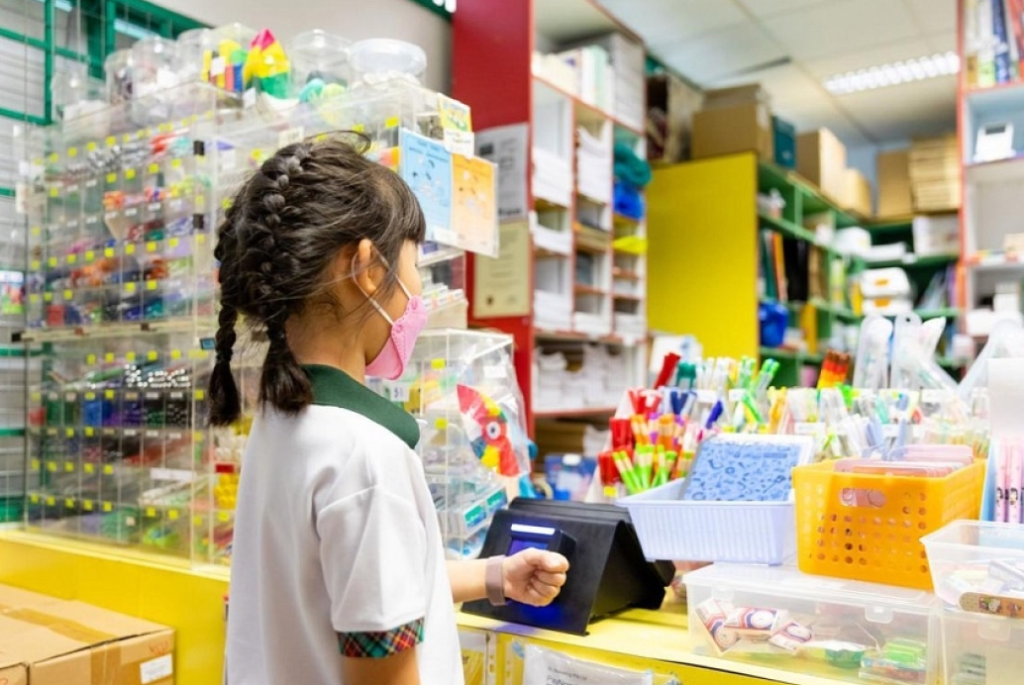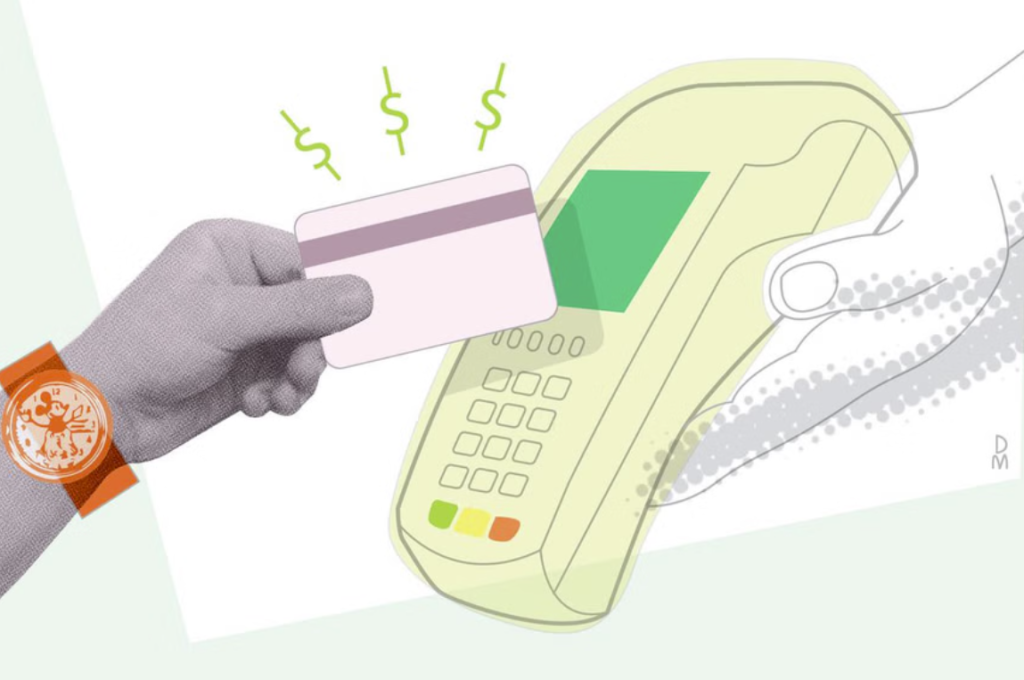By Chuin Ting Weber, CFP, CFA, CAIA
CEO & Chief Investment Officer, MoneyOwl
This article was first published in The Straits Times.

Financial institutions have increasingly introduced new products that put cashless payments
into young hands.
POSB’s Smart Buddy programme, which allows children to pay with a wearable smartwatch or
card linked to a parent’s account, was launched in 2017. In 2022, the Ministry of Education said it
would be extended to all primary and secondary schools, junior colleges and Millennia Institute
by 2025.
There have been more innovations recently.
In September, OCBC created a stir when it announced a debit card for children as young as seven years old. While the card is tied to a bank account that has to be opened by parents, the account is registered solely under the child’s name.
In November, fintech company Revolut started distributing its debit cards via vending machines in the National University of Singapore. Revolut Singapore’s chief executive officer Raymond Ng had said that students below the age of 21 are often underserved by traditional financial institutions.
He added that the vending machine at NUS is also a way to make money management more accessible to students and boost financial literacy.
This move towards making payment products accessible to young people is in part driven by necessity. Singapore is moving towards cashless payments, even in school canteens and bookshops. But what is interesting is the suggestion that using debit cards can help young people improve budgeting and money management. Is this really the case?
The debit card itself does not teach
The Programme for International Student Assessment (Pisa) under the Organisation for Economic Cooperation and Development (OECD) has some insights.
Singaporeans will be familiar with Pisa as an international benchmark for education, with local teenagers consistently topping many subjects. What is lesser known is Pisa’s optional test on financial literacy, as Singapore has not participated in it.
The last test in 2022 involved nearly 100,000 15-year-olds from 20 countries and economies.
It showed that financially literate students are more likely to display positive financial behaviours such as saving money and comparing prices before buying something.
The question then is whether students’ experience with money, basic financial products and digital transactions contribute to higher financial literacy and better behaviours.
Many young people already participate in the financial system. Across the OECD countries and economies, 63 per cent of 15-year-olds have a bank account, 62 per cent own a payment or debit card, and 86 per cent have bought something online, either alone or with a family member. These are all positively associated with higher financial literacy.
However, Pisa’s research indicates that the actual experience of using a card or other devices for payment does not improve financial literacy by itself, after accounting for other factors.
In fact, sending money to others and making payments using a phone were associated with lower performance.

At the same time, sticking to cash wasn’t necessarily superior. Those who were confident in paying with a debit card still scored higher in financial literacy than those who used cash.
The Pisa report concludes that the relationship between financial literacy and engaging with digital financial products is not straightforward.
From this and other studies, it ultimately depends on whether there is meaningful engagement around the product, such that students can learn about money management.
In other words, it’s not about whether students use a debit card or not. It’s about whether they are taught how to budget and compare prices to make the best choices, before using debit cards to implement these decisions.
This, in turn, brings us to the role of Mum and Dad.
Mum and Dad as money coaches
Students who discussed their spending decisions with their parents weekly or monthly, and who could decide autonomously what to spend their money on, performed better in the financial literacy assessment.
This suggests that parents should coach their children about money matters as part of daily life. And this can start as early as in primary school, like what one of my senior colleagues did with his children, who are now adults.
He gave them a monthly allowance in primary school, with an extra buffer for savings. They could spend the money on whatever they wanted as long as it was legal, but they got high interest of about 5 per cent per quarter on their savings. This incentivised them to spend wisely, as there was a high opportunity cost to buying things.
When they became teens, he opened extra bank accounts in his name and gave them ATM cards, forcing them to withdraw money rather than ask him for cash. This then got them comfortable handling money.
As they got older, he gradually reduced the interest on their savings till it was at about 4 per cent per year at 18 years old, after which he got them to invest in real estate investment trusts (Reits) for a 6 per cent yield. This was meant to show them that they need to invest to achieve a good return on their money – and that investments should be held over a longer term.
His grown children are now comfortable investing in stocks.
There were no debit cards for children in his time. But if there were, I am sure he would have got them.
In my case, I opened investment accounts for each of my two children, in joint name with me, when my youngest was two years old. The idea was not to co-mingle what was theirs with investments for my retirement. Separating out portfolios for different goals is a useful strategy in financial management.
Whenever they have money gifts, like ang pow money, I put at least half of it into these accounts– invested all in globally diversified, low-cost equity funds – and show them the balance under their name from time to time.
I let my 14-year-old son pick a few stocks, too. When he gets anxious about the portfolios, it is a teachable moment, in which I talk about how markets work over the long term.
On payments, I recently insisted that he get a Revolut debit card so he can do what he wants with the amount I load into the wallet, and not bother me to make online purchases.
Because we talk a lot about money and spending, including whether something is “value for money” to buy, I know that he will come and ask me from time to time.
In this way, the debit card becomes an effective tool for learning.
But I will hold off on the debit card for my eight-year-old daughter until I am more confident she can understand some key money concepts, like how making a choice to buy an item reduces the amount of money available to buy something else.”
Invest in financial literacy, both parents and children
Taking a step back, just giving kids tools like debit cards will do little to help them build wise
financial habits. The card itself does not educate. It is how it is used as a teaching tool that
matters.
To that end, parents also need to be savvy and invest in their own financial literacy, in order to
guide their children effectively.
From my firm’s interaction with participants in our corporate financial literacy programmes,
even highly educated Singaporeans may struggle with understanding concepts like investing and
risk.
Practical financial literacy is becoming increasingly crucial, with the constant evolution of digital
financial and payment services.
New financial products and services bring convenience, but also carry new risks. Besides the
obvious risk of frauds and scams, there is increasingly easy digital access to investments, credit
and buy-now-pay-later schemes.
The fact is, both parents and their children need to be empowered with appropriate financial
knowledge and advice to properly handle the world of digital finance.
Chuin Ting Weber is CEO and chief investment officer of MoneyOwl, a licensed financial
adviser and social enterprise under Temasek Trust.




